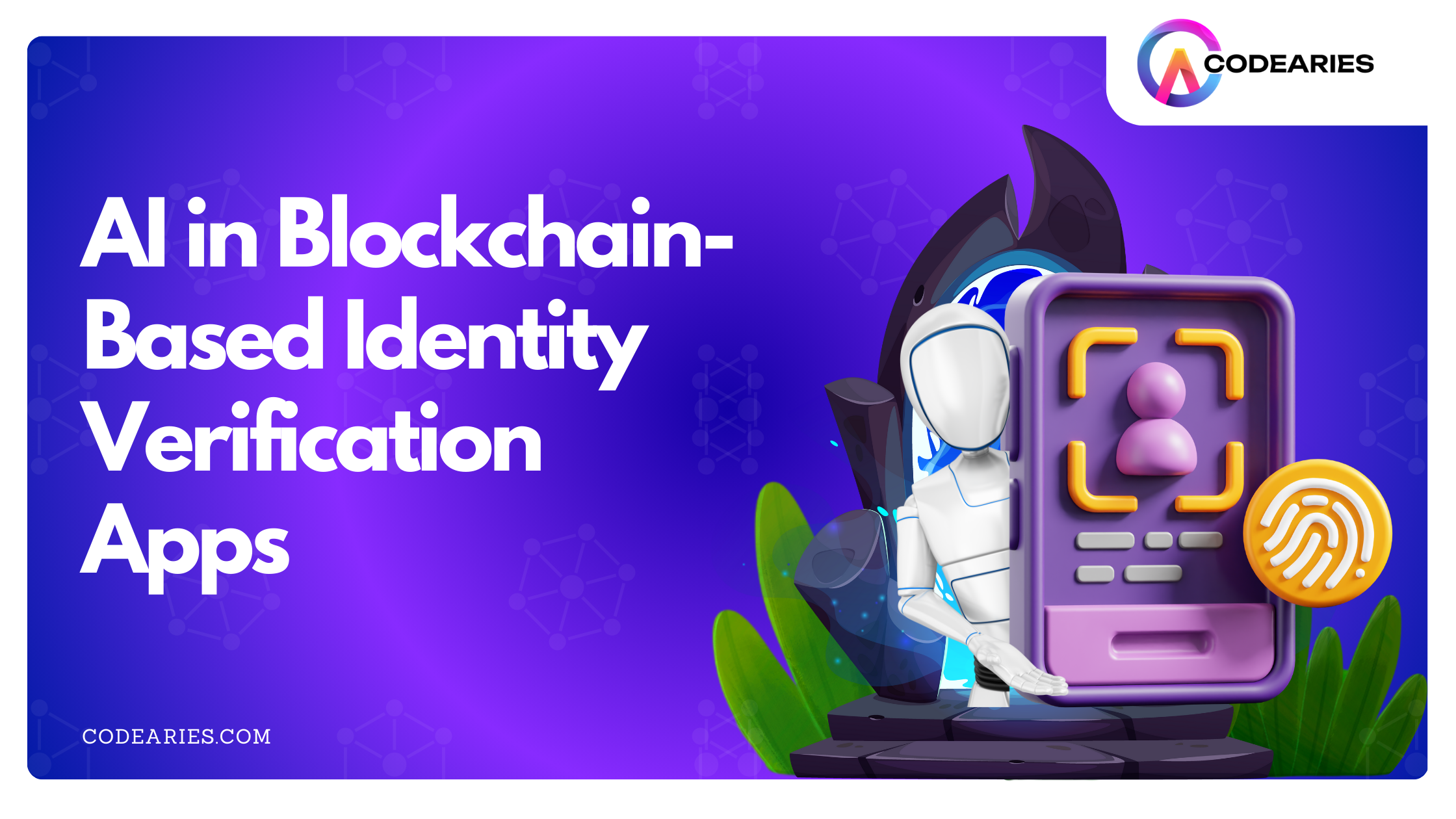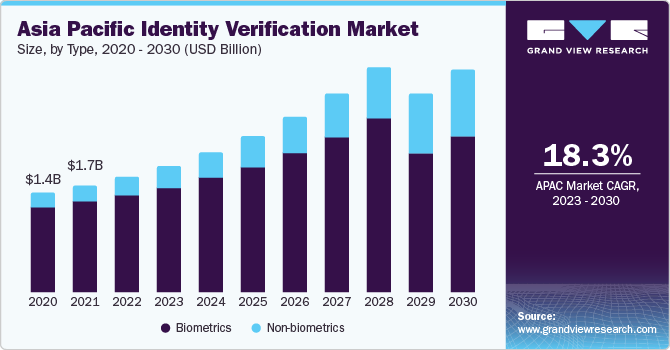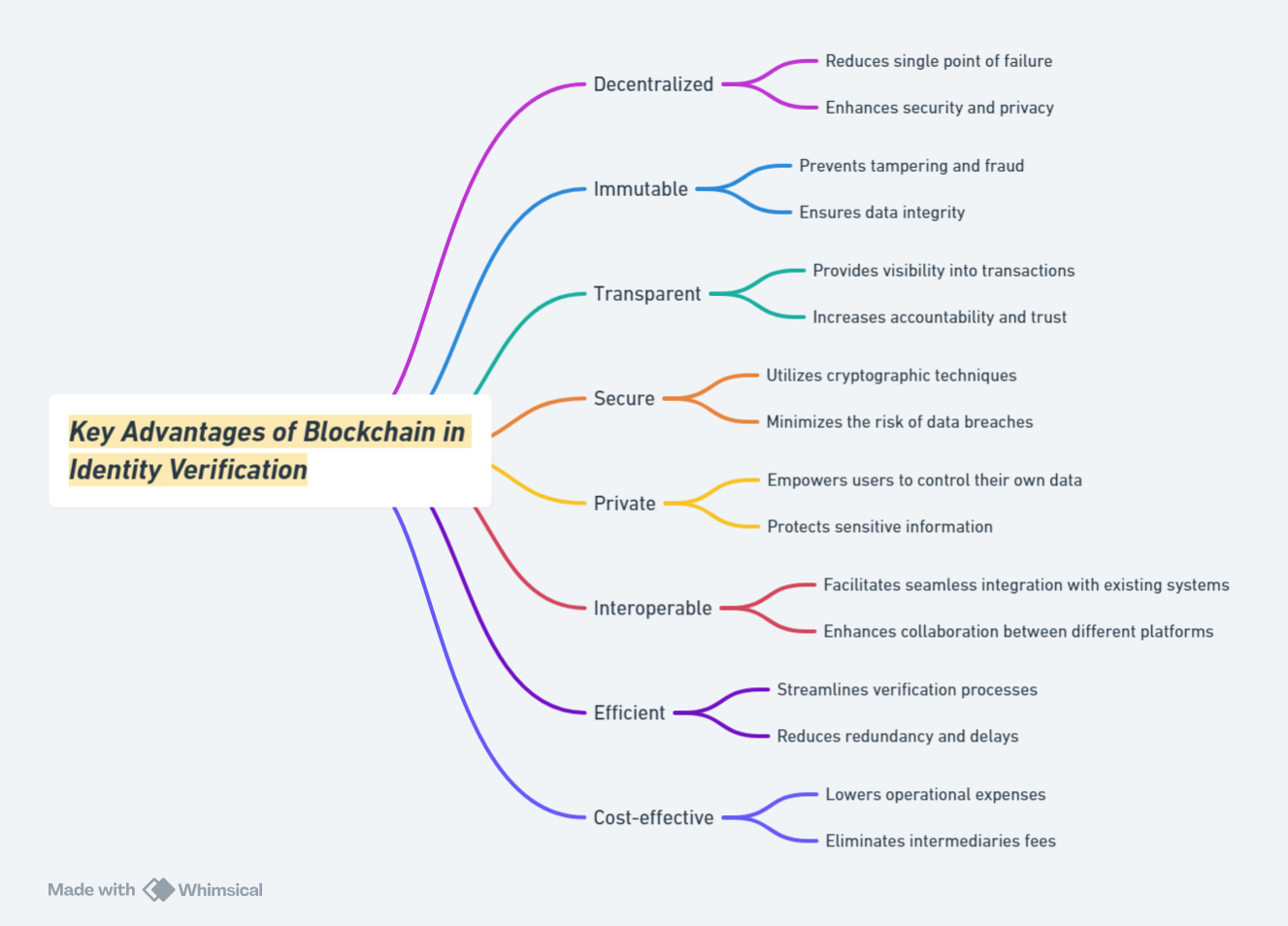
Identity verification has come a long way from the days of physical documents like passports and ID cards. Traditional methods, while straightforward, were vulnerable to forgery, theft, and loss. As we move into the digital era, electronic methods using passwords, PINs, and security questions have become common. However, these methods also had their shortcomings, such as being susceptible to hacking and phishing attacks.
Today, digital identity verification is essential for secure transactions and access to online services. However, the challenges associated with traditional methods have highlighted the need for more advanced and secure verification processes. With the rise of online services and increasing threats like identity theft and data breaches, there is a growing demand for robust identity verification systems. The integration of Artificial Intelligence (AI) with blockchain technology has emerged as a powerful solution, offering unparalleled security, privacy, and efficiency.
This article explores how AI in blockchain-based identity verification apps is transforming digital identity management.
Why Digital Identity Verification is Essential
In the age of online banking, e-commerce, and social media, securely proving one’s identity is crucial. Digital identity verification has become a fundamental component of secure online interactions, playing a vital role across various sectors, including finance, government, healthcare, and social media. By ensuring that only authorized individuals access sensitive information and services, it helps prevent fraud, identity theft, and unauthorized transactions. Moreover, digital identity verification streamlines processes like customer onboarding and online transactions, enhancing efficiency and user experience. As our digital interactions increase, robust identity verification systems are essential for safeguarding personal data, enabling secure access to services, and providing personalized user experiences.

Challenges in Traditional Identity Verification
Traditional identity verification methods often fall short in addressing modern security threats. They typically rely on centralized systems, making them vulnerable to single points of failure and large-scale data breaches. Moreover, manual verification processes can be slow, error-prone, and costly. These challenges underscore the need for innovative solutions that can enhance security while streamlining the verification process.
The Role of Blockchain in Identity Verification
Blockchain technology addresses many of the limitations of traditional identity verification methods by leveraging a decentralized, distributed ledger that ensures transparency, security, and immutability. This makes blockchain an excellent choice for managing and verifying digital identities.
Key Advantages of Blockchain in Identity Verification

- Decentralization By eliminating central points of failure, blockchain reduces the risk of data breaches and unauthorized access.
- Immutability: Data recorded on a blockchain cannot be altered or erased, ensuring the integrity and authenticity of identity records.
- Transparency: Blockchain provides a clear, auditable trail of all identity-related activities, enhancing accountability.
- Enhanced Security: The cryptographic nature of blockchain offers robust protection against hacking and identity fraud.
- Privacy Control: Individuals can manage and control their own identity data, deciding who has access to their information.
- Interoperability: Blockchain supports the seamless exchange of identity information across different platforms and organizations.
Understanding AI’s Role in Identity Verification
AI brings a new dimension to identity verification by automating complex processes and enhancing security measures. AI algorithms can quickly analyze vast amounts of data, identifying patterns and anomalies that may indicate fraudulent activity. Machine learning models improve over time, making AI an invaluable tool for real-time identity verification and fraud detection.
Here are key ways AI is transforming identity verification:
Automated Data Analysis
AI can swiftly analyze vast amounts of data to detect patterns, spot anomalies, and identify potential fraudulent activities with high precision.
Enhanced Biometric Verification
AI-driven algorithms improve the accuracy of biometric verification methods, including facial recognition, fingerprint scanning, and iris recognition, making these processes more reliable.
Real-Time Fraud Detection
By continuously monitoring user behavior and transaction data, AI can detect and respond to fraudulent activities as they happen, offering real-time protection.
Natural Language Processing (NLP)
AI leverages NLP to accurately extract and verify information from identity documents, such as passports and driver’s licenses, streamlining the verification process.
Machine Learning
AI systems can learn from previous data, improving their accuracy and effectiveness over time, which enhances the reliability of identity verification methods.
Improved User Experience
AI personalizes the identity verification process, making it more intuitive and user-friendly, thus reducing friction for users.
Integration with Blockchain
Combining AI with blockchain technology can create highly secure and efficient identity verification systems, offering a powerful synergy that enhances overall security and data integrity.
By integrating AI into identity verification, organizations can achieve greater automation, heightened accuracy, and better security, ultimately minimizing fraud and enhancing user trust.
AI and Blockchain Integration for Identity Verification
The integration of AI and blockchain technology creates a powerful synergy for identity verification. AI enhances the efficiency and effectiveness of blockchain-based systems by automating data analysis and decision-making processes. In turn, blockchain provides a secure and transparent platform for storing and managing identity data. Together, these technologies offer enhanced security, privacy, and reliability for identity verification systems.
Key Benefits
- Strengthened Security: AI provides real-time fraud detection, while blockchain maintains data integrity through its tamper-proof ledger.
- Greater Efficiency: Automating identity verification processes with AI reduces manual intervention, speeding up verification and conserving resources.
- Enhanced Privacy Control: Blockchain’s decentralized architecture allows individuals more control over their personal data, minimizing unauthorized access.
- Scalability: Both AI and blockchain are capable of handling vast amounts of data and a large number of users, making them ideal for scalable identity solutions.
- Seamless Interoperability: Blockchain can act as a universal platform for sharing verified identity information across different systems and organizations.
Specific Use Cases
Decentralized Identity Management (DID)
AI can automate and enhance the verification processes within DID systems, improving both security and efficiency while detecting fraudulent activities.
Supply Chain Verification
AI can analyze data stored on blockchain networks to ensure product authenticity and track provenance, adding transparency to supply chains.
Healthcare Data Management
AI can analyze health records on blockchain to detect patterns, improve patient care, and enhance outcomes, while maintaining data security and integrity.
Government Services
The integration of AI and blockchain can streamline digital identity systems for public services, ensuring secure and efficient identity management for citizens.
Case Studies: Successful Implementations
1. Sovrin Foundation
- AI Integration: AI is employed by Sovrin to enhance identity verification processes, such as analyzing biometric data for authentication and detecting unusual patterns in user behavior that may signal fraudulent activities.
- Key Advantages: The decentralized nature of Sovrin’s platform empowers users to control their own identity data, while AI contributes to increased security, efficiency, and a smoother user experience.
2. Evernym
- AI Integration: AI is utilized to automate the identity verification process, improving the precision of biometric checks like facial recognition. AI also plays a role in fraud detection by analyzing user data against existing databases.
- Key Advantages: Evernym’s solutions offer a robust framework for identity management, with AI improving accuracy and mitigating the risks associated with fraudulent activities.
3. IBM Digital Health Pass:
- AI Integration: AI is employed to authenticate identities, enhance the accuracy of health data, and detect fraudulent activities. For example, AI analyzes medical images and data for inconsistencies that might suggest health issues or identity fraud.
- Key Advantages: The IBM Digital Health Pass ensures a secure and efficient way for users to manage and share their health records, with AI enhancing data accuracy and reducing fraud risk.
4. Microsoft Identity Platform
- AI Integration: AI is used to verify user identities by analyzing behavioral data to spot potential fraud, ensuring that only authorized users access sensitive information.
- Key Advantages: The Microsoft Identity Platform provides a scalable solution for identity management, with AI improving security and offering a seamless user experience.
These case studies demonstrate the successful application of AI in blockchain-based identity verification systems, highlighting the potential of these technologies to create secure, efficient, and user-friendly solutions. As AI and blockchain continue to develop, more innovative applications are expected to emerge, further enhancing digital identity management.
How can Codearies help you?
At Codearies, we are at the forefront of innovation, seamlessly integrating AI with blockchain technology to revolutionize identity verification apps. Our expertise in both fields enables us to deliver robust, secure, and highly efficient solutions that elevate your digital identity management. By harnessing the power of AI, we enhance blockchain-based systems with advanced fraud detection, real-time data analysis, and biometric verification, ensuring unparalleled accuracy and security. Our solutions streamline verification processes, improve user experiences, and maintain the integrity of identity data.
With Codearies, you can trust in a tailored approach that not only meets regulatory standards but also sets new benchmarks for privacy and efficiency in identity verification. Let us help you leverage the synergy between AI and blockchain to build cutting-edge applications that drive your business forward.
Future Prospects: AI and Blockchain Transforming Identity Verification
The future of AI in blockchain-based identity verification is set to revolutionize security, efficiency, and privacy. As AI advances, it will enhance fraud detection, refine biometric accuracy, and integrate quantum-resistant encryption, while blockchain ensures secure, decentralized data management. Automation and real-time verification will streamline processes, and greater privacy controls will empower individuals with better data management and consent transparency. Emerging applications in IoT, supply chain transparency, and digital government services will further expand the scope of these technologies. Ethical considerations, such as bias mitigation and robust data privacy, will be crucial. Overall, the fusion of AI and blockchain promises to deliver increasingly secure, efficient, and privacy-focused identity verification solutions.
Conclusion
The transition from traditional to digital identity verification has brought significant improvements in security and efficiency. Integrating Artificial Intelligence (AI) with blockchain technology offers a powerful solution, enhancing accuracy and safeguarding personal data. AI automates and refines the verification process, while blockchain ensures transparency and security through decentralization.
FAQS
How do I verify my blockchain app?
To verify your blockchain app, follow these steps:
- Functionality Testing: Ensure all features work as intended.
- Security Audits: Conduct thorough security reviews to spot vulnerabilities.
- Performance Evaluation: Test how well the app handles various loads.
- Compliance Checks: Ensure adherence to regulations and standards.
- User Acceptance Testing (UAT): Collect user feedback to refine the app.
- Integration Testing: Verify smooth integration with other systems.
What is blockchain-based verification?
Blockchain-based verification uses blockchain technology to validate data, transactions, or identities. It leverages decentralization, immutability, and transparency to provide a secure and transparent record of all verification activities.
What is KYC verification in blockchain?
KYC verification in blockchain involves using blockchain to authenticate users’ identities. It uses decentralized identity systems and smart contracts to securely manage and verify personal information while maintaining privacy.
What is proof of ID in blockchain?
Proof of ID in blockchain refers to methods for verifying identities using blockchain technology. It includes digital identities, decentralized identity systems, and protocols that ensure secure and immutable authentication of user credentials.


